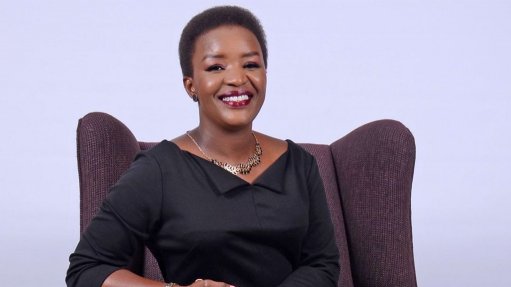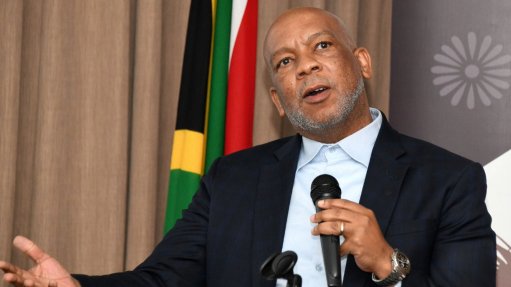Infiniti, and the South African driving the plan to grow the brand

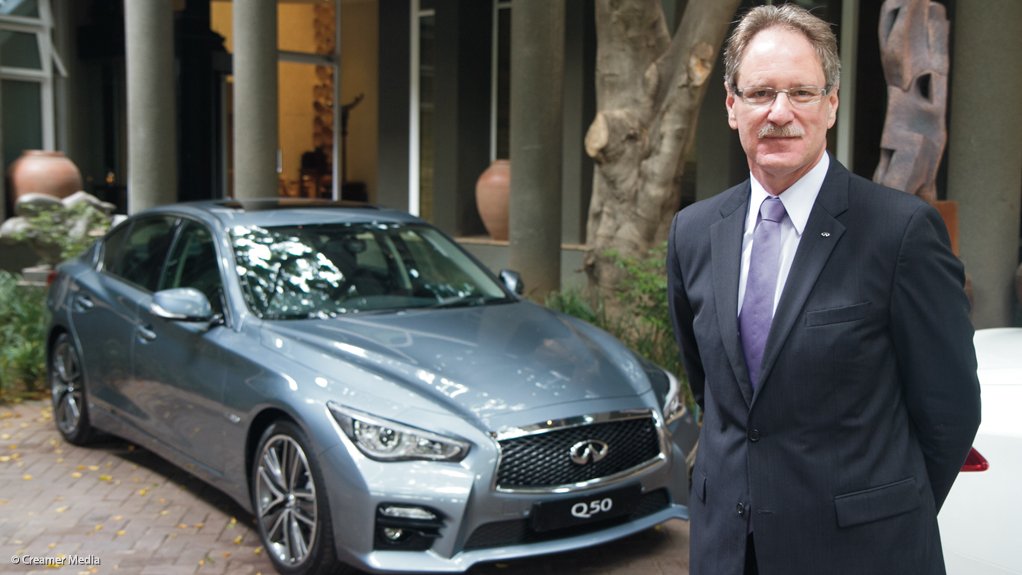
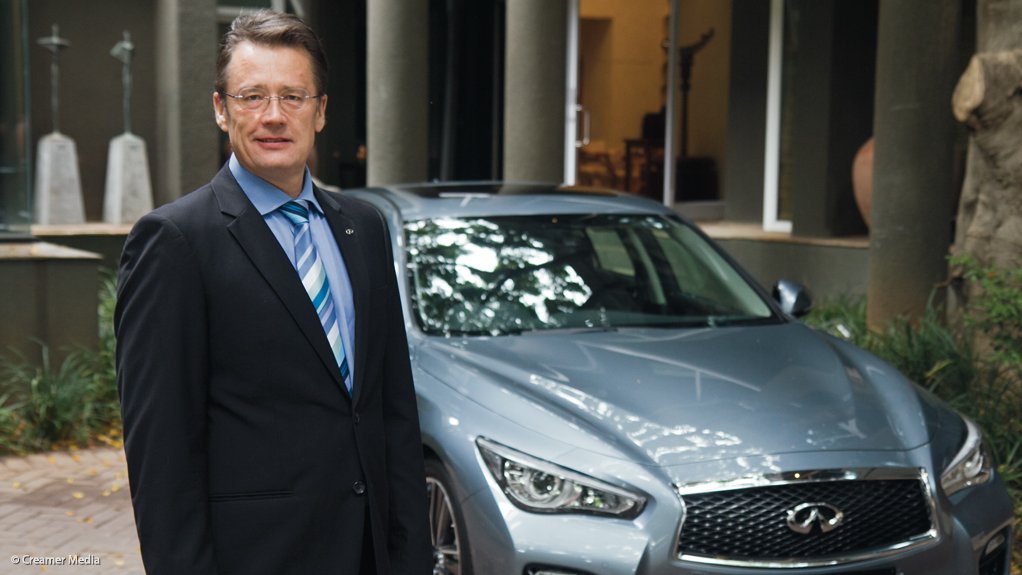
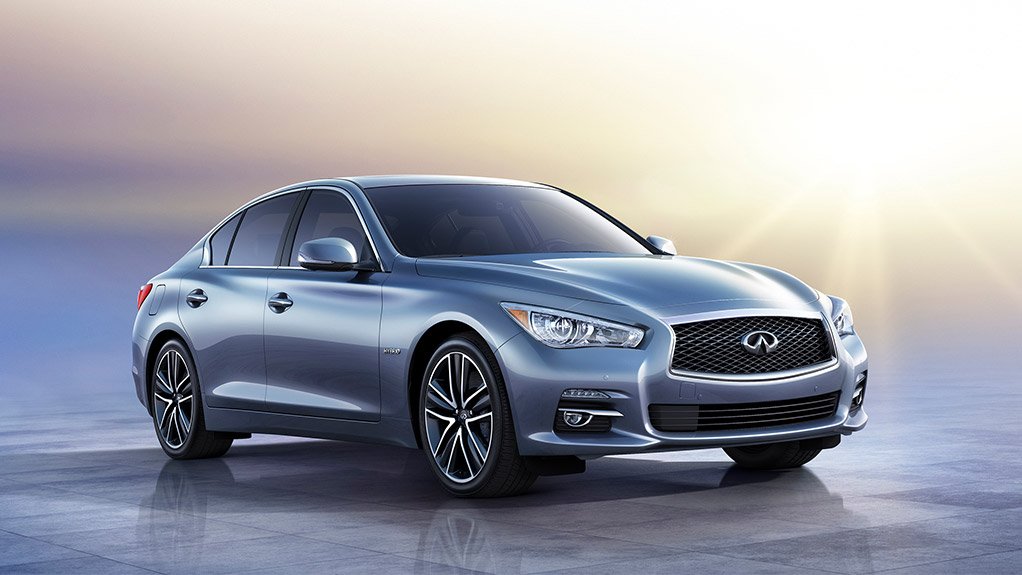
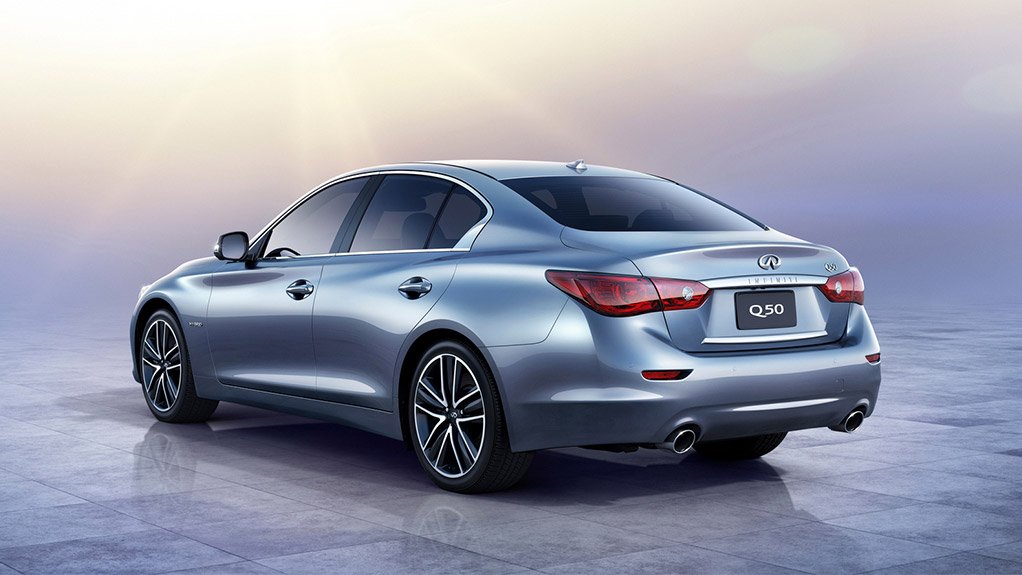
Johan de Nysschen
Photo by Duane Daws
George Stegmann
Photo by Duane Daws
The Q50
Photo by Infiniti
The Q50
Photo by Infiniti
South Africans love money-cars. The more-expensive, upper-end-of-the-market premium cars. In South Africa the premium market makes up 13% of the total new vehicle market, while the global figure is 11%.
Should the country follow the global trend, the local premium market should continue its recent growth surge. The premium sector reached around 80 000 units in 2012, up from 75 363 in 2011.
In 2013, the global premium market was around 6.7-million units, says Infiniti president Johan de Nysschen. In 2014 this should expand to 7-million, growing to 8.5-million vehicles by 2020.
“A lot of this growth is coming from China, which is why it is important to gain a foothold in the emerging markets now already,” notes the Pietermaritzburg-born executive.
Emerging markets are becoming bigger business for the premium brand, housed as a stand alone company within Japanese car maker Nissan.
In the 2012 financial year, Infiniti sold 172 000 units globally, and will probably sell 185 000 cars in 2013, says De Nysschen. However, around 125 000 of last year’s number was in the US, Infiniti’s 1989 birthplace.
“We hope to establish China as a second volume hub,” says De Nysschen.
He believes Infiniti can sell between 25 000 and 30 000 units in China in 2014, with this country set to become the world’s largest premium car market. Total Infiniti global sales in the new year will hopefully breach 200 000 units.
Following China, Infiniti will target Brazil. The brand entered South Africa in 2012, and currently has a presence in 47 markets.
While these sales numbers sound healthy, they probably won’t raise any eyebrows in the boardrooms of Infiniti’s German competitors.
It is clear the Japanese premium brand is not yet gripping the imagination of deep-pocket consumers in a similar fashion to its German counterparts. Mercedes-Benz, for example, sold 1.5-million passenger cars in 2013. Other teutonic rivals are Audi and BMW.
But De Nysschen, 18 months into the job as head honcho at Infiniti, wants to change this, and he has the budget to make it happen. The total investment by Nissan in the Infiniti brand up to 2020 will be $13-billion.
For De Nysschen this is the difference between the ‘old’ Infiniti, largely a US brand, and the ambitious new Infiniti, seeking to conquer the world – or, at least, parts of it.
De Nysschen wants the brand to be in many markets, but not in every driveway.
He believes Infiniti can end 2020 with yearly sales of 500 000 units.
This will be “a third of what the Germans sell” yes, but it will also be “a big, significant presence” in the market.
“And we’ll be a very profitable business.”
A key differentiator between Infiniti and its German competitors is that Infiniti is not for everyone – a market it appears Audi, BMW and Mercedes-Benz have been creeping towards with its more affordable premium cars, making these badges more relevant to mainstream buyers, says De Nysschen.
“These brands may have become so successful they have become commonplace, and no longer as exclusive as they used to be.
“Asking how many Infinitis we want to sell, is the wrong question,” he adds.
“We won’t challenge them [the German brands] on the volume front. We want to cultivate a product range that is highly admired and highly aspirational.
“The thing that will draw customers to Infiniti is that not everyone has one.”
However, achieving 500 000 units is many sales transactions away from 185 000 units.
How will Infiniti get there? How will Infiniti expand from its current 200 units a year in South Africa, for example?
New products, new drive trains, new plants and new markets, says De Nysschen.
New markets such as China and Brazil. New factories are already on their way in the UK and China. (The company is headquartered in Hong Kong.)
Moving out of the US market into the global space also means that Infiniti requires products that are more relevant to the European and Asian markets – such as cars with smaller engines.
Following large-scale development on this front, Infiniti will eventually have an engine range from 160 hp up to 600 hp. It will also look at electric motors and fuel cells as drive trains of the future.
At the moment, Infiniti drive trains start at a roaring 330 hp.
New engines will include a “very efficient 1.6 l turbo engine”, says De Nysschen.
New models will include the Q50, a sedan that will compete with the likes of the BMW 3-Series, as well as the Q30, which will tackle competitors such as the Audi Q3.
Infiniti is also developing a “flagship halo car”, says De Nysschen.
Current models will also be upgraded.
Infinity South Africa GM George Stegmann believes South African sales can pick up significantly through the introduction of the Q30 and Q50.
Arriving in 2012, Infiniti knew it was knocking on the door of the local premium car market with a number of big cars and big engines from the US market and that volumes would be small, he notes.
However, the smaller Q50, set for launch in April in a diesel and hybrid version, will “give us a volume opportunity”.
The Q30 is only due for global start of commercial production in 2015.
“From a directional point of view, we are on track,” believes Stegmann.
De Nysschen is rather outspoken when he says there was “perhaps not a full appreciation” in Japan in 2012 for the degree of sophistication and complexity that exists in the South African premium car market.
Perhaps there was also an overemphasis on technical compliance with the regulations, and not so much on the investment necessary for building brand awareness and the dealer network, he notes.
Infiniti South Africa is, however, “very important” to Nissan, as it is an emerging market, while it also holds personal significance for De Nysschen, who started up Audi in South Africa as a separate brand to Volkswagen, and led Audi in the US before heading to Infiniti.
While De Nysschen does not expect Infiniti to rival “the Germans tomorrow”, he believes there exists a “great opportunity” for the brand to grow in South Africa.
Infiniti currently has four dealers in South Africa, and will probably not grow beyond ten, says Stegmann.
Comments
Announcements
What's On
Subscribe to improve your user experience...
Option 1 (equivalent of R125 a month):
Receive a weekly copy of Creamer Media's Engineering News & Mining Weekly magazine
(print copy for those in South Africa and e-magazine for those outside of South Africa)
Receive daily email newsletters
Access to full search results
Access archive of magazine back copies
Access to Projects in Progress
Access to ONE Research Report of your choice in PDF format
Option 2 (equivalent of R375 a month):
All benefits from Option 1
PLUS
Access to Creamer Media's Research Channel Africa for ALL Research Reports, in PDF format, on various industrial and mining sectors
including Electricity; Water; Energy Transition; Hydrogen; Roads, Rail and Ports; Coal; Gold; Platinum; Battery Metals; etc.
Already a subscriber?
Forgotten your password?
Receive weekly copy of Creamer Media's Engineering News & Mining Weekly magazine (print copy for those in South Africa and e-magazine for those outside of South Africa)
➕
Recieve daily email newsletters
➕
Access to full search results
➕
Access archive of magazine back copies
➕
Access to Projects in Progress
➕
Access to ONE Research Report of your choice in PDF format
RESEARCH CHANNEL AFRICA
R4500 (equivalent of R375 a month)
SUBSCRIBEAll benefits from Option 1
➕
Access to Creamer Media's Research Channel Africa for ALL Research Reports on various industrial and mining sectors, in PDF format, including on:
Electricity
➕
Water
➕
Energy Transition
➕
Hydrogen
➕
Roads, Rail and Ports
➕
Coal
➕
Gold
➕
Platinum
➕
Battery Metals
➕
etc.
Receive all benefits from Option 1 or Option 2 delivered to numerous people at your company
➕
Multiple User names and Passwords for simultaneous log-ins
➕
Intranet integration access to all in your organisation














